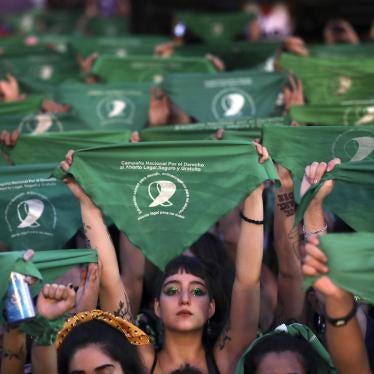The Brazilian government failed to follow through on its commitment to enact a National Pesticide Reduction Program on International Pesticide Free Day today. Brazil is among the top consumers of pesticides in the world, many of which are highly hazardous.
Though the original plan was drafted in 2014, the Ministry of Agriculture, Livestock and Food Supply (Ministério da Agricultura e Pecuária, MAPA) has repeatedly blocked it from moving forward. The failure of the ministries involved to reach an agreement today is a striking blow to the Brazilian scientists, activists, and family farmers who have advocated for the plan for over a decade.
Any current revisions to the plan have not been made public. The interministerial body responsible for the plan should urgently move it forward without further delay or weakening of the 2014 draft.
The original pesticide reduction plan has six key areas and includes initiatives to improve monitoring and research on pesticide exposure and health impacts, strengthen regulations on spraying of pesticides, create pesticide-free zones, eliminate tax advantages for pesticides, and incentivize agroecological alternatives, including by increasing access to financial credits for organic farmers.
Under the original plan, the registration process will need to apply the precautionary principle to pesticide evaluations, meaning that Brazil would limit or prohibit the use of a pesticide when there is reason to believe it could be harmful. This measure is even more important since Brazil passed the “poison package” law in May, which reduced the role of the health and environment ministries in approving pesticides for use, instead granting MAPA primary authority.
The original plan also seeks to strengthen the registration process for pesticides and stop using pesticides that are banned elsewhere due to health or environmental risks. Among these are pesticides banned in the European Union but exported to and sold in Brazil. In September, President Luiz Inácio Lula da Silva called out this double standard and what he described as pressure by “pesticide entrepreneurs” on the legislature.
Recent investigations have revealed that some pesticide manufacturers are frequently meeting with the Brazilian government. Investigative journalism group O Joio e O Trigo recently published research showing that agribusiness and agrichemical lobbyists held 752 meetings between October 2022 and August 2024 with federal government officials. Of these, more than half were held by one of three European pesticide manufacturers: BASF, Bayer, or Syngenta. Recent research led by Repórter Brasil, in collaboration with Human Rights Watch, showed that agribusiness lobbyists are frequently visiting MAPA through a private door.
Policymakers seeking to implement the pesticide reduction plan face strong opposition from agribusiness and agrochemical industries, but they should stay true to the plan’s important commitments. It’s been ten years since the plan was first drafted. It shouldn’t take another ten to put it into action.










